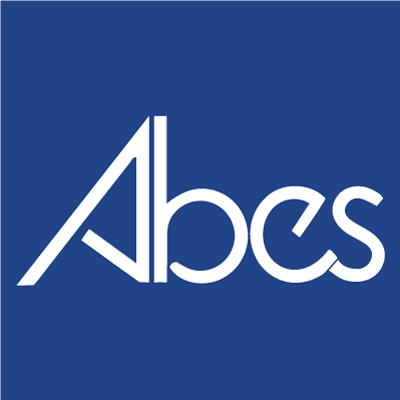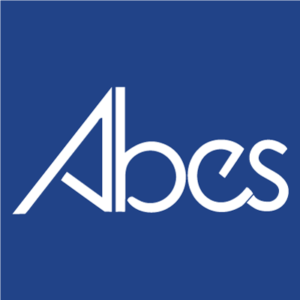Practical Nursing Diploma at ABES College
Start Your LPN Career
Are you passionate about making a difference in the lives of others? Do you want an in demand and respected career where you play a vital role in healthcare, providing essential care to those in need? If so, a career as a Licensed Practical Nurse (LPN) could be for you. Our 5 Term Practical Nursing Diploma program is your path to success in this rewarding profession.
The Importance of LPNs in Healthcare
Licensed Practical Nurses (LPNs) are key members of the healthcare team, working in diverse settings such as hospitals, clinics, long-term care facilities, and community health centers.
They provide hands-on care to patients, ensuring their physical, emotional, and mental well-being. As an LPN, you'll have the unique opportunity to build meaningful relationships with patients, offer comfort, and support them through their healthcare journey.
LPNs in Canada are highly valued for their compassionate care and practical expertise. They work alongside Registered Nurses (RNs), physicians, and other healthcare professionals, bridging the gap between patients and complex medical systems. LPNs often serve as advocates for patients, ensuring their needs are met and their voices are heard.
What do LPN’s Do?
- Administering medications and injections
- Monitoring vital signs and symptoms
- Assisting in wound care and dressing changes
- Supporting patients with activities of daily living
- Educating patients and their families on health management
- Participating in patient care planning and assessment
In Alberta, LPN have advancing scopes that allow them to do more complex care tasks and roles such as:
- Intravenous insertions and medications
- Complex would care
- Advanced foot care
- Esthetics
- Perioperative (operating room) nursing
This evolving scope means that LPNs have a significant role in the modern healthcare system and allows for diverse career opportunities.
High Demand for LPNs: A Career with Job Security
- The demand for LPNs in Canada is at an all-time high. With an aging population and increasing healthcare needs, there is a pressing need for skilled nurses across the country. The job market for LPNs is robust, offering job security, competitive salaries (In Alberta the average wage for LPN’s is $30.17 per hour), and opportunities for advancement.
- As an LPN, you'll be equipped with the skills and knowledge needed to thrive in various healthcare environments. Whether you're interested in acute care, community health, long-term care, esthetics, or starting your own business, the possibilities are vast and rewarding.
Why Choose Our Practical Nursing Program?
- Our Practical Nursing Diploma Program is College of Licensed Practical Nurses of Alberta (CLPNA) approved and designed to provide you with the required education, hands-on experience, and professional support needed to succeed in this dynamic field.
- With small class sizes, dedicated and experienced instructors, high quality curriculum, and clinical placements that immerse you in real-world nursing environments, you'll graduate ready to make a meaningful impact.
- At ABES we focus on creating a student-centered experience that removes barriers and supports your success in our program. Some things that make our program unique include:
- Student centered scheduling including shorter academic weeks (when possible)
- Later class start times to allow for a balance with school and other obligations
- Curriculum that is inclusive and centered around student engagement and autonomy
- Condensed summer semesters to allow for time off for mental health and wellbeing
- High quality simulation and technology-based curriculum
- Join us and become part of the backbone of Canadian healthcare. Embark on a career where every day brings new opportunities to learn, grow, and improve the lives of others.
Simulation in the Practical Nurse Diploma Program
At ABES, simulation is an integral part of the Practical Nurse Diploma program, designed to provide students with realistic, hands-on learning experiences. This advanced training method helps students develop essential nursing skills while preparing them for real-world healthcare settings.
- Hands-on Experience: Simulation provides practical, hands-on training in a safe, controlled environment.
- Skill Development: Students develop critical skills like patient assessment, decision-making, and communication.
- Realistic Scenarios: Simulations replicate real-world healthcare situations, allowing students to apply their knowledge in anatomy, pharmacology, care planning, and more.
- Risk-Free Learning: Students can practice clinical skills without the risk of harming actual patients.
- Increased Confidence: Simulation helps build student confidence by allowing them to handle complex clinical challenges before entering the workforce.
- Debriefing Sessions: After each simulation, students participate in debriefing sessions to reflect on their actions, receive feedback, and improve future performance.
- Teamwork and Collaboration: Students work together to solve problems, enhancing their ability to function in team-based healthcare environments.
- Job-Ready Graduates: Simulation ensures students are prepared for real-world healthcare environments, making them ready for employment in hospitals, clinics, long-term care facilities, and more.
- Patient-Centered Care: The focus is on providing students with the ability to respond to diverse patient needs, from basic care to emergency situations.
- Modern Healthcare Preparation: Students become proficient in using technology and up-to-date practices, ensuring they are prepared for the demands of today’s healthcare system.
*LPN Source:https://www.jobbank.gc.ca/marketreport/wages-occupation/4383/22310
*Employment Outlook Source: https://open.alberta.ca/dataset/61843e6c-f254-4c93-81b2-36d8f03e6a31/resource/cc42eb20-2458-444e-bb2c-96b7625c2c2a/download/jet-alberta-short-term-employment-forecast-stef-2023-2025.pdf
Take the First Step Towards Your Future in Healthcare Today!
Eligibility Requirements
To be eligible for the Practical Nurse Diploma program, you must have:
- A high school diploma or equivalent
- A minimum of 60% in English 30-1 and Math 30-1

